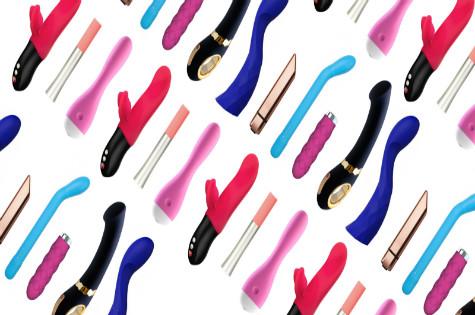- The smell: Tox toys have a strong chemical smell, which never goes away completely – even with repeated washing.
- See-through dildos: Not all see-through dildos are toxic, but the majority are. If it’s see-through and flexible and soft, odds are it’s toxic. Some see-through dildos are made with a substance called “elastomers”; they’re safer in terms of not containing phthalates but are still porous and unsterilisable, so should be used with a condom. See-through hard plastic is safe, but a much less desirable texture for a toy.
- Price: The cheaper the vibrator or dildo, the more of a guarantee it’s toxic.
- Jelly: Anything containing the word jelly is pretty much synonymous with toxic in the sex toy world.
Toxic sex toys:What to know before you buy
Date: July 04 2016

Ever thought about the toxins in sex toys? Plenty haven’t, but should do their research before buying a sex toy.
“Sex toys are not regulated, so anything goes,” says Elle Black, body-safe online pleasure retailer. “It means that many cheap sex toys are made from toxic materials that can do you more harm than good – they might end up impacting your health, not to mention your fertility.
“Even with thorough cleaning, it’s not uncommon for toxic toys to give you thrush, urinary tract infections, rashes, burning or itching sensations. It could even affect women’s ability to conceive,” she added.
Safety concerns have emerged over phthalates – chemicals found in sex toys and other products to soften plastic and increase flexibility – and while their use is being phased out, some sex toys can still contain them. “Some research suggest that lifetime exposure to these chemicals may potentially cause cancer and harm reproductive systems,” says Elle. “While the use of phthalates is decreasing, there’s a rise in other new toxins.”
It is important to check the packaging and look for materials such as polyvinyl chloride (PVC), vinyl and jelly rubber, which often contain phthalates. Remember, phthalates soften plastic, so bendable toys with a jelly-like feel are likely to have that toxin. In addition, many users of a particular product containing Sil-a-gel experience burning and itching.
Toxins used to create cheap sex toys have been banned from being used in children’s toys because they may go in the mouth, but they’re still being used for products such as vibrators, which are going inside very intimate regions of people’s bodies,” Elle says. “We refuse to sell toxic toys and only sell body-safe products. We do not want to risk the health and wellbeing of our customers.
People who have older sex toys need to be wary. “If you’re still using a vibrator or dildo from 5-10 years ago, it could be made of phthalates,” Elle says. “Check the manufacturer’s site or even smell the product. If it has a strong chemical odour, ditch it now! It’s better to be safe and protect your health.”
What, then, is safe? It is recommended to purchase sex toys that are RoHS compliant and buy reputable brands like LELO, OhMiBod, Je Joue, Rocks Off, Jimmyjane, We Vibe, Tantus, Crave, Fun Factory, Swan or Jopen from authorised sites like Mimi De Luxe.
Clues for recognising phthalate sex toys:
About the Expert
Founded in September 2011 and entirely Australian owned and operated, Mimi De Luxe is a discrete digital platform enabling men and women to shop for sex-positive products that are non-pornographic, non-offensive and visually appealing. Their website offers discerning and adventurous customers designer brands, quality and stylish products impeccably packaged. All brands offered by Mimi De Luxe only make vibrators in premium, body-safe materials that don’t contain any toxic materials. All toys are non-toxic.
|
||||||||||||||||||||||||||||||||||||||||||||||||







 Agree (0)
Agree (0) Disagree (
Disagree (










__small.png)










